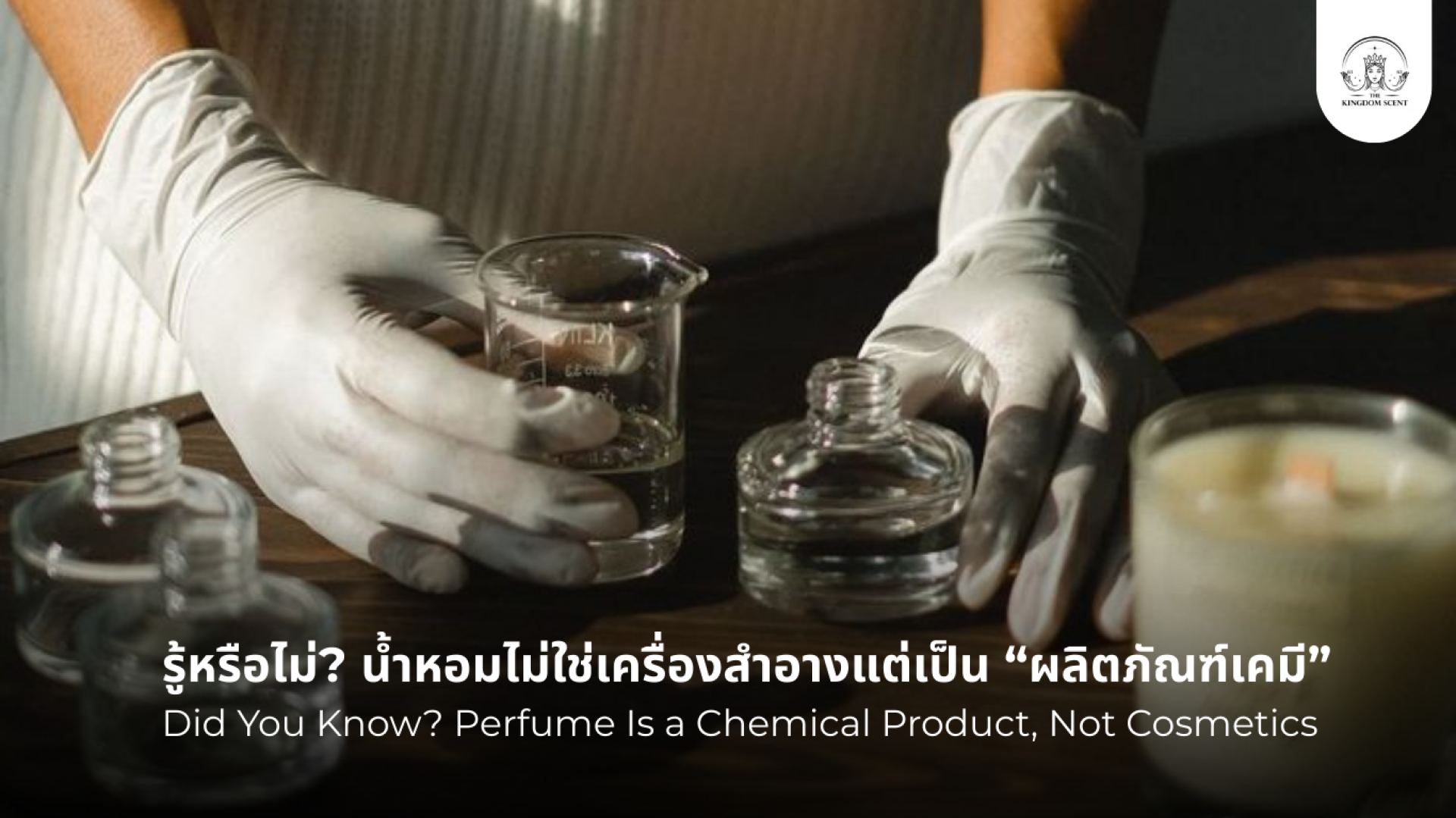Did You Know? Perfume Is a Chemical Product, Not Cosmetics

Many people assume that perfume is part of cosmetics, just like lipstick or skincare products. However, under international regulations and legal standards, perfumes are officially classified as chemical products, not cosmetics. But why is that the case?
Why Perfume Is Not Classified as Cosmetics
- Legal Definitions: In many countries, including Thailand, perfumes fall under the chemical product category due to their high alcohol content, volatile compounds, and potential allergens.
- Purpose of Use: Cosmetics are defined as products intended to beautify, cleanse, or protect the skin. Perfume, on the other hand, is designed solely to provide fragrance, not to alter the skin.
- Safety Standards: Perfumes undergo stricter testing for chemical safety, allergen labeling, and irritation compared to regular beauty products.
Implications of Being Classified as a Chemical Product
1. Labeling Regulations
- Allergenic substances must be disclosed under EU/IFRA standards.
- Expiration date, batch number, and safety information are mandatory.
2. Import & Export Requirements
- Perfume requires chemical certification, not just cosmetic permits.
3. Marketing Restrictions
- Brands cannot claim that perfume has skincare benefits, as it falls outside the cosmetic category.
What Consumers Should Do
- Purchase from trusted sources with clear labeling and safety information.
- Check allergen ingredients if you have sensitive skin.
- Store properly, away from heat and direct sunlight, to prevent chemical degradation.
While perfume may appear similar to cosmetics, in reality, it is categorized as a chemical product subject to stricter safety regulations. Understanding this not only helps consumers make safer choices but is also essential knowledge for entrepreneurs planning to launch their own fragrance brand.
If youre looking for a reliable partner to create high-quality perfumes that meet international standards, The Kingdom Scent is here to support you from concept to final product.
References
European Commission Cosmetics Regulation (EC) No 1223/2009.
IFRA Standards International Fragrance Association.
Thai FDA (Food and Drug Administration).
U.S. FDA Perfume and Fragrance.
Springer Fragrance Chemistry.


